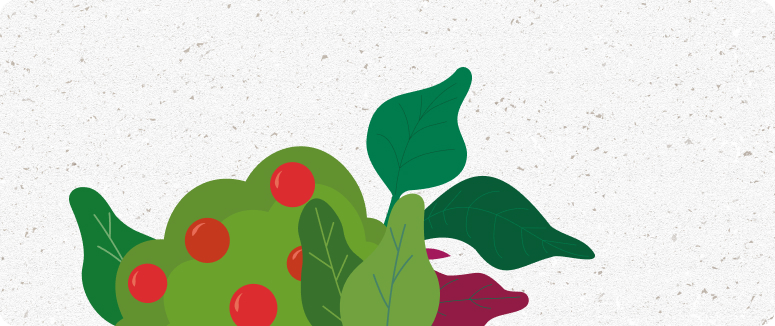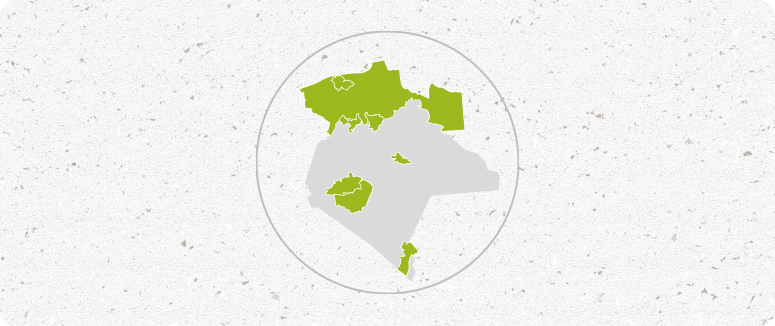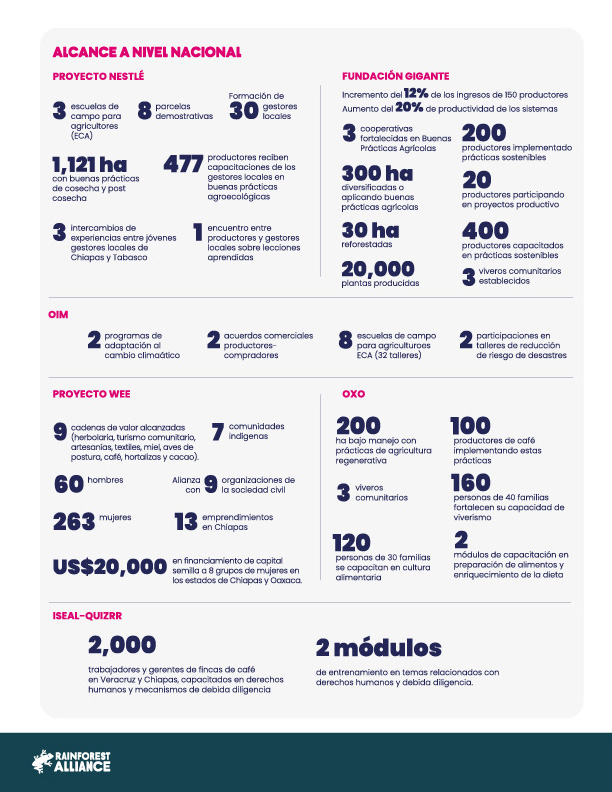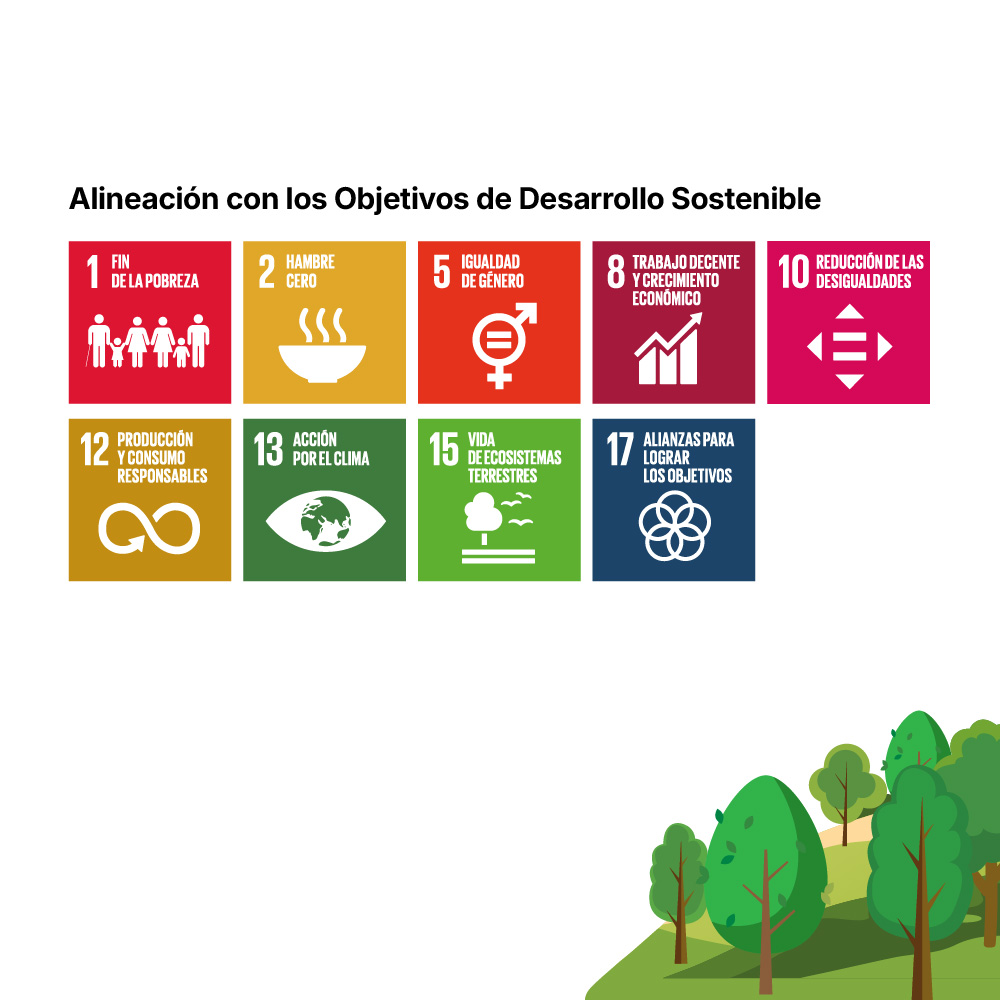Nestlé Project: Strengthen the technical skills of young women and men in cocoa and coffee-producing communities and organizations in Chiapas and Tabasco to form community-based teams that provide technical assistance for more sustainable coffee and cocoa production.
Fundación Gigante Project: Advance sustainable coffee and cacao production while reducing communities’ vulnerability to natural disasters by restoring ecosystems and building the resilience of coffee plantations and the surrounding landscapes.
WEE Project: Enhance women’s social, political, and financial conditions by strengthening their participation in production and the sustainable management and of natural resources.
Oxo Project: Strengthen the resilience of coffee-growing landscapes by implementing more sustainable regenerative agriculture practices.
IOM Project: Support the adoption of climate-resilient agricultural practices in developing communities in southeastern Mexico to enhance climate adaptation, mitigate environmental causes of migration, and promote safe migration options for environmental migrants.
ISEAL-Quizrr Project: Develop and pilot training modules for workers and managers on farms certified by Rainforest Alliance.







